Pearls
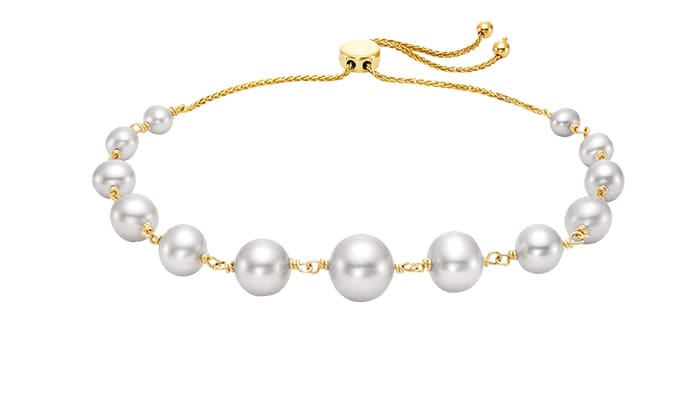
For centuries, people have been captivated by the natural beauty of pearls. With their lustrous sheen and sumptuous colors, pearls are regarded as one of nature’s most glorious treasures. Once reserved for only royalty, pearls have been among the most coveted and sought-after gems in the world. Today, pearl jewelry is as popular as ever, proving that their beauty and allure is timeless.
Buying Pearls at justjewellery.online
justjewellery.online carries a stunning selection of cultured pearls, which includes Akoya, South Sea, Tahitian, and freshwater. Our diverse selection of pearl jewelry is available in a variety of styles and designs, from classic to contemporary. Whether you choose a luxurious strand of golden south sea pearls or a delicate pair of freshwater pearl earrings, a quality piece of pearl jewelry, when cared for properly, can be enjoyed for many years.
At justjewellery.online, we take pride in the fact that our pearl jewelry meets the industry’s highest quality standards. Our process ensures our pearls have good luster, shape, color and no obvious blemishes, and that the size of the pearls match where applicable.
Natural vs. Cultured Pearls
Natural pearls and cultured pearls are both pearls, but are simply created under different conditions. Natural pearls found in the wild are incredibly rare and therefore, extremely expensive. That’s why nearly all pearls found in the marketplace are cultured pearls. Cultured pearls are cultivated by oyster and mussel farmers, under controlled conditions. The process under which a cultured pearl is produced is the same as a natural pearl, it is simply helped along by human interaction. Pearl farming produces two common types of pearls, saltwater and freshwater.
Types of Pearls
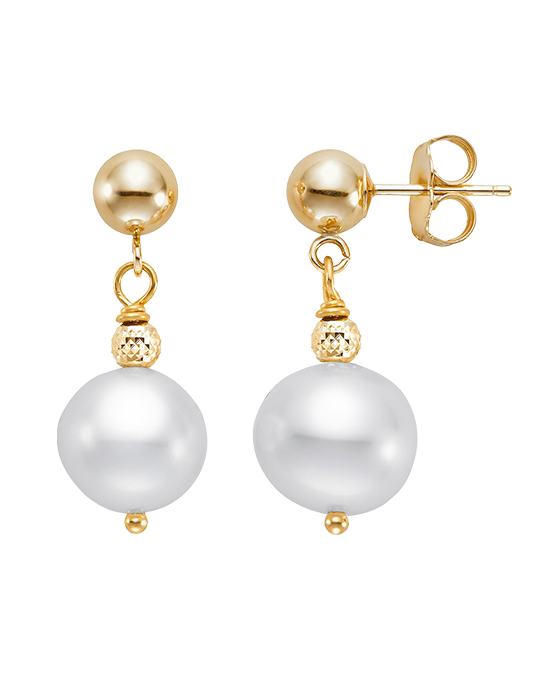
Freshwater
Renowned for its brilliance and luster, the versatile freshwater pearl comes in an incredible array of shapes, colors, and sizes. It is the most widely produced pearl on the market, and therefore, the most affordable. They come in several natural colors, including white, pink, and multi-pink. Freshwater pearls look very similar to Akoya pearls, but are much lower in price. This cultured pearl is farmed from mussels in freshwater settings, like ponds and lakes, and it is common to find multiple pearls inside one mussel.
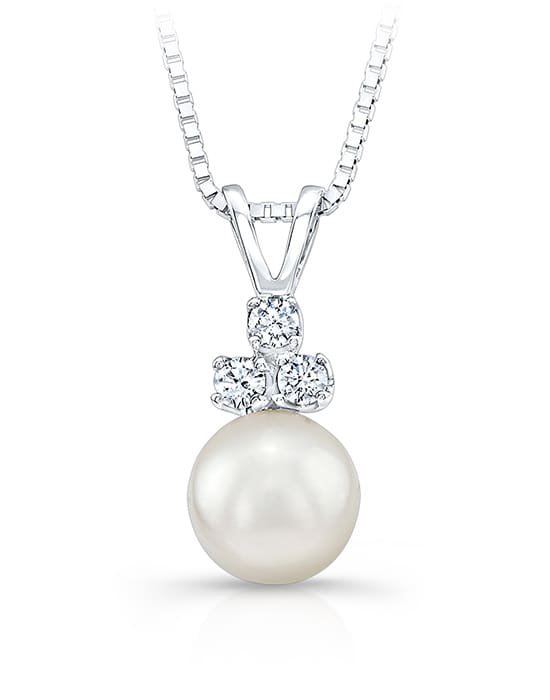
Akoya
Prized for their brilliant luster and lovely round shape, the cultured Akoya pearl is the perfect choice for jewelry, particularly pearl strand necklaces. This elegant pearl comes in soft white or cream colors, with luminous overtones of silver, cream, or pink. Many people consider the Akoya to be a classic example of the definitive white pearl. The majority of cultured Akoya pearls are produced in Japan. Due to their naturally round shape and high luster, they are one of the most sought-after types of pearls on the market.
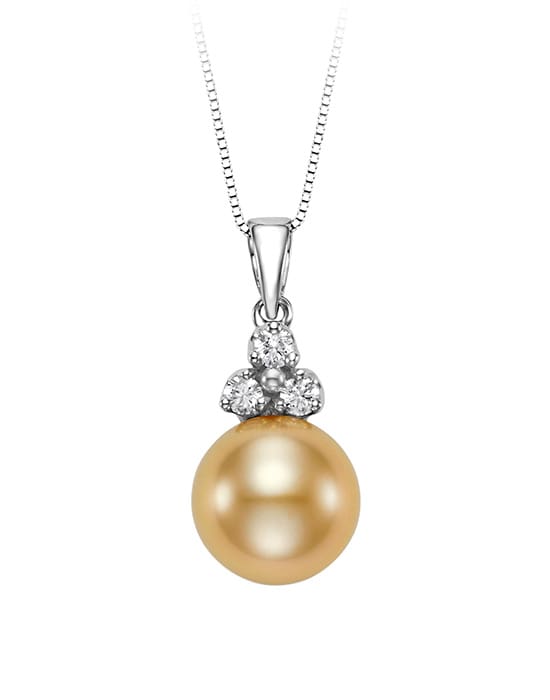
South Sea
The large and luxurious South Sea pearl comes in an array of sumptuous colors, including white, cream, champagne, yellow, and gold. This cultured saltwater pearl is farmed from the rare white-lipped pinctada maxima oyster, which is primarily found in Australia. Due to its sensitive growing conditions and extended cultivation period, South Sea pearls are rare and very expensive. This show-stopping pearl is often used in high-end jewelry pieces, like rings or pendants.
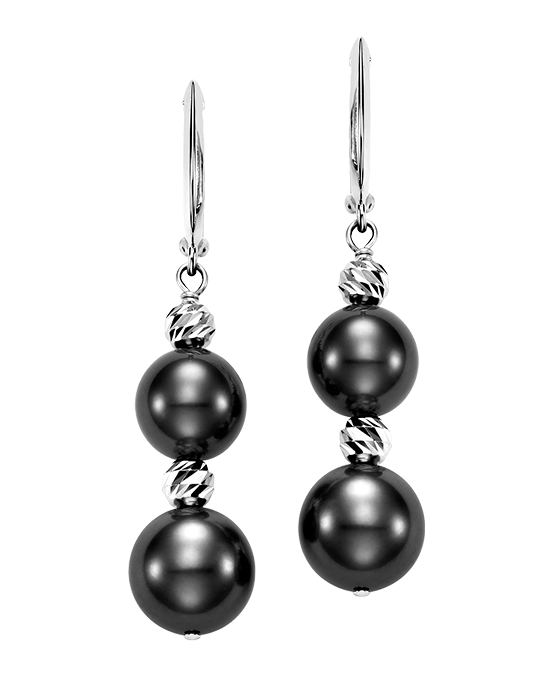
Tahitian
Cultured Tahitian pearls are thought to be the most magnificent pearls on the market. They are large in size and come in exotic black and gray colors with gorgeous iridescent overtones of green, blue, silver, purple, and brown. This stunning saltwater pearl is farmed from the black lip oyster, which is primarily found in Tahiti and French Polynesia. Tahitian pearls are often used for bold and glamorous jewelry designs.
Pearl Quality
Color
Pearls come in several colors, the most familiar being white, cream, pink, gold, silver, and black. Many pearls also have a secondary surface color, or iridescent overtones, which is visible in certain types of reflective light. For instance, a strand of cream colored pearls may, at second glance, have a light blush overtone.
Luster
Luster refers to the amount of light that reflects off the surface of the pearl, as well as the glow found within its top layers. This glossy combination of surface layers is called the pearl’s nacre, and it is what gives the pearl its extraordinary beauty and sheen.
Surface
When the surface layers, or nacre, of a pearl are being formed, common imperfections can occur, including spots and bubbles. These imperfections directly affect the value of the pearl. Pearls that have the smoothest surface are considered the best quality.
Shape
Pearls come in four basic shapes: round, off-round, drop, and baroque. Of course, round is the most desirable shape because of its symmetry and marketability. Off-round are nearly perfect, but may be mildly extended or flattened. Drop pearls are oval or pear-shaped, and often used for earrings. And baroque pearls are very unique and irregular in shape, no two are exactly alike.
Pearl Care & Cleaning
Pearls are soft and easily scratched, that’s why it’s important to wear and store your pearl jewelry with care. Avoid exposing your pearls to harsh chemicals such as bleach, ammonia, chlorine, hair spray, and perfume, as they will damage your pearls. Do not wear your pearl jewelry while using a pool or hot tub. Wrap your pearls in a soft cloth or jewelry pouch to prevent scratches during storage.
Pearl jewelry can be gently cleaned with a soft cotton cloth. If necessary, you can add a few drops of lukewarm water to dampen the cloth. It’s important to remember that extreme temperatures can damage pearls, so make sure the water is not too hot or too cold. Carefully wipe each pearl individually. Never submerge pearls in water, it may weaken the thread or damage the pearls themselves. Ensure that the pearls are completely dry before storing. Do not use a commercial jewelry cleaner on pearls.
Treatments
Most pearls on the market today have had some degree of treatment or enhancement, which is standard practice in the pearl industry. The most common treatments are bleaching, polishing, and in some cases, dying. This is done to improve the pearls luster and overall appearance. Costco does carry some treated and enhanced pearls.

